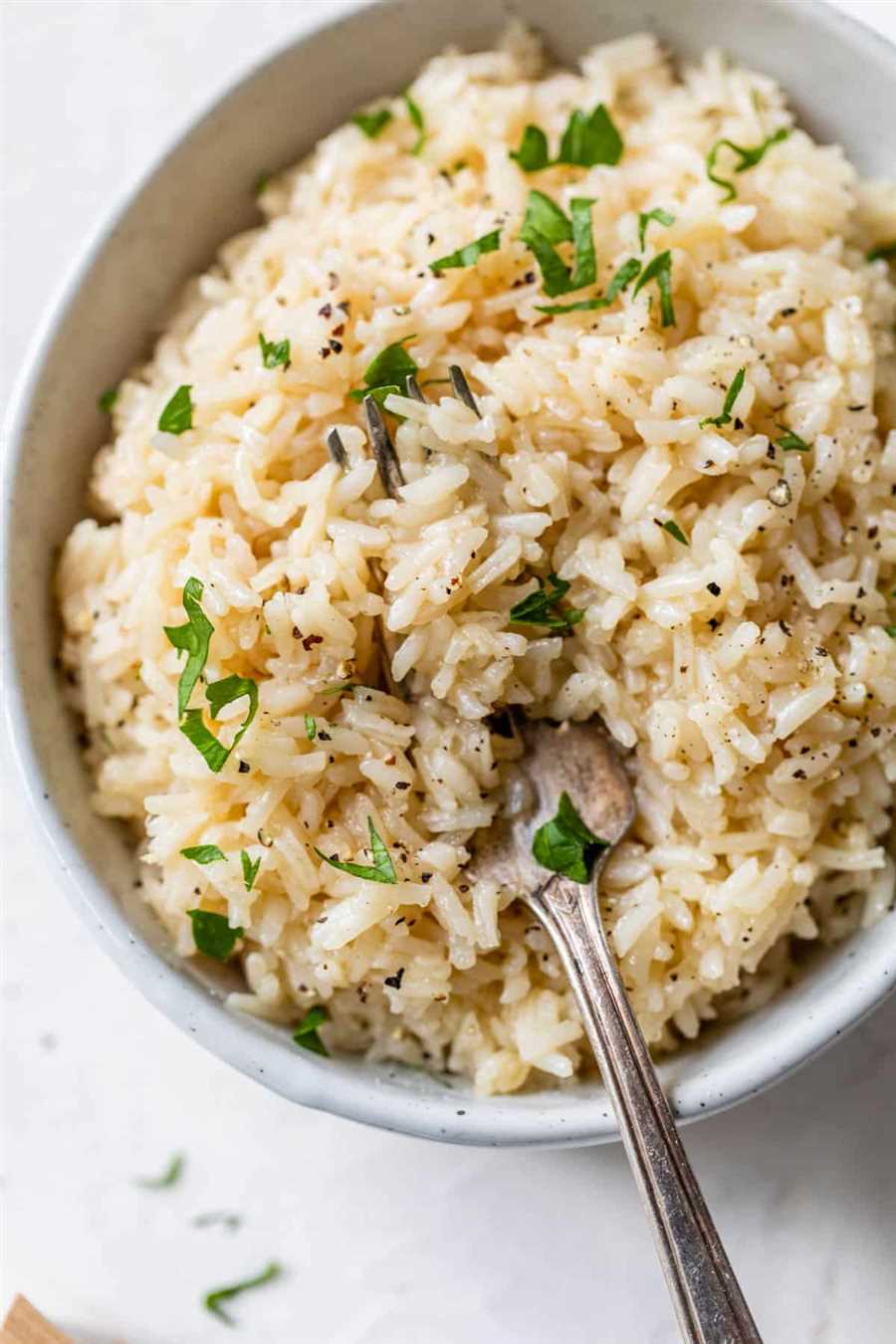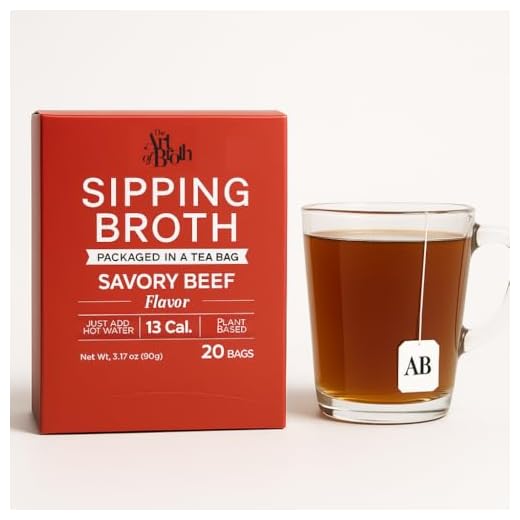





Rice is a staple food in many cultures around the world and is known for its versatility and ability to complement a wide range of dishes. Traditionally, rice is cooked by boiling it in water until it becomes fluffy and tender. However, have you ever wondered if you can cook rice in broth instead of water?
The answer is yes, you can cook rice in broth! Using broth instead of water adds an extra layer of flavor to your rice, making it more aromatic and delicious. Whether you choose vegetable broth, chicken broth, or beef broth, the broth infuses the rice with its unique taste, resulting in a more flavorful and savory dish.
Cooking rice in broth is also a great way to elevate the taste of your meals. The broth imparts a subtle richness and depth to the rice, enhancing the overall flavor profile. This technique is particularly useful when preparing rice dishes as a side to accompany main courses, as it adds an extra dimension to the meal.
Not only does cooking rice in broth enhance the taste, but it can also provide additional nutrients. Broth is usually made by simmering vegetables, meat, or bones in water, extracting their flavors and nutrients. By using broth instead of water, you are incorporating these nutrients into your rice, making it a more nutritious option.
So, the next time you cook rice, consider using broth instead of water. Experiment with different types of broth to find the perfect match for your meal and take your rice dishes to a whole new level of flavor.
Pros and cons of cooking rice in broth instead of water
When it comes to cooking rice, water is traditionally used as the primary cooking liquid. However, some people prefer to cook their rice in broth instead of water for added flavor and aroma. While cooking rice in broth can have its advantages, there are also some potential drawbacks to consider.
Pros:
| Advantages |
|---|
| Enhanced flavor |
| Cooking rice in broth can infuse it with a rich, savory flavor. The broth adds depth and complexity to the rice, making it more flavorful and enjoyable to eat. |
| Aroma |
| Broth can also contribute to the aroma of the cooked rice. The delicious scent of the broth wafting through the kitchen can make the overall cooking experience more pleasant. |
| Variety |
| Using broth instead of water allows for a variety of rice flavors. You can experiment with different broth flavors, such as vegetable, chicken, beef, or mushroom, to create unique and diverse rice dishes. |
Cons:
| Disadvantages |
|---|
| Saltiness |
| Broth often contains salt, so when you cook rice in broth, it can result in a slightly saltier taste compared to cooking it in water. This may not be suitable for individuals on low-sodium diets. |
| Additional ingredients |
| Cooking rice in broth may require additional ingredients, such as herbs, spices, or vegetables, to enhance the flavors further. This can add complexity and time to the cooking process. |
| Cost |
| Using broth as a cooking liquid can be more expensive than water, especially if you opt for store-bought broth. Depending on the frequency of rice consumption and the availability of homemade broth, this can impact the overall cost of meals. |
Ultimately, whether you choose to cook rice in broth or water depends on your personal preferences and dietary needs. It’s worth experimenting with both methods to determine which one suits your taste buds best.
Benefits of using broth for cooking rice
Using broth instead of water to cook rice can offer several benefits. Here are some reasons why you might consider using broth for cooking rice:
1. Enhanced flavor
Broth adds a rich and savory taste to the rice, making it more flavorful and enjoyable to eat. The herbs, spices, and seasonings in the broth can infuse into the rice, adding depth and complexity to the dish.
2. Nutritional value
Broth, especially homemade broth, is rich in nutrients. When you cook rice in broth, some of these nutrients are absorbed by the rice, making it a more nutritious choice compared to cooking it in plain water. Depending on the type of broth you use, you can add vitamins, minerals, and essential amino acids to your rice.
3. Versatility
Using broth opens up a world of possibilities for flavor combinations. You can use different types of broth, such as chicken, beef, vegetable, or mushroom broth, to infuse different flavors into your rice. This versatility allows you to create a wide variety of rice dishes to suit your taste preferences.
4. One-pot meals
Cooking rice in broth can turn a simple side dish into a complete meal. By adding vegetables, proteins, or other ingredients to the broth while cooking the rice, you can create flavorful one-pot meals. This can save you time and effort in preparing separate dishes.
5. Increased moisture
Using broth can help prevent dry, clumpy rice. The extra moisture from the broth can keep the rice grains moist and separated, resulting in a more pleasant texture. This can be particularly beneficial when cooking long-grain rice or rice varieties that tend to dry out easily.
Overall, cooking rice in broth can elevate the flavor, nutritional value, and versatility of your dishes. It can also add moisture to the rice, resulting in a more pleasing texture. Give it a try and explore the delicious possibilities that using broth can bring to your rice dishes.
Drawbacks of using broth for cooking rice
While cooking rice in broth can add flavor and depth to your dish, there are a few drawbacks to consider:
1. Sodium content:
Broth typically contains a higher sodium content compared to water. This can result in rice that tastes overly salty, especially if you add additional seasonings or sauces to the dish.
2. Flavor overpowering:
Some types of broth, such as beef or vegetable broth, have strong, distinct flavors that may overpower the taste of the rice. This can be a disadvantage, especially if you want the rice to be a neutral base for other dishes.
3. Limited versatility:
Using broth limits the versatility of the cooked rice. Unlike plain rice cooked in water, which can be used in a variety of dishes, rice cooked in broth may be more suited to specific cuisines or flavor profiles.
Overall, while cooking rice in broth can be a tasty option, it’s important to consider the drawbacks and how they may impact the final taste and versatility of your dish.
How to Enhance the Flavor of Rice with Broth
Using broth instead of water is a fantastic way to enhance the taste and overall flavor of your rice dish. Broth adds depth, complexity, and richness to a simple grain, transforming it into an exciting and flavorful side dish. Here are some tips on how to make the most out of using broth when cooking rice.
1. Choose the Right Type of Broth
There are various types of broth available, such as vegetable, chicken, beef, or seafood. The type of broth you choose will greatly influence the final taste of the rice. For example, if you are cooking a seafood dish, using a seafood broth will intensify the flavors and create a harmonious combination. Similarly, vegetable broth can enhance the natural earthy flavors of the rice when paired with vegetarian or vegan dishes.
2. Consider Adding Flavorful Ingredients
To further enhance the flavor of your rice, consider adding some additional ingredients to the broth. For example, you can use herbs like thyme, rosemary, or bay leaves to infuse the broth with more complexity. Other ingredients like garlic, onions, or ginger can also be added to provide a subtle aromatic undertone to the rice. These additional flavors will seep into the rice grains during cooking, resulting in a more flavorful and aromatic dish.
Note: Be mindful of the intensity of flavors you are adding to the broth. The rice should complement the main dish without overpowering it.
3. Adjust the Liquid Amount

When cooking rice with broth, you may need to adjust the amount of liquid used depending on the type of broth and rice you are using. Generally, a 1:1 ratio of broth to rice is recommended for most recipes. However, certain types of rice, such as brown rice, may require slightly more liquid and longer cooking times. It is important to follow the recommended cooking instructions for the specific type of rice you are using to ensure optimal results.
Follow these tips and get ready to elevate the flavor of your rice dishes by cooking them with flavorful broth. Your taste buds will thank you!
Alternative options for cooking rice with flavor
While cooking rice with water is the traditional method, there are various alternative options available that can add flavor and enhance the overall taste of your rice dishes. Here are a few suggestions:
1. Cooking rice in broth: Instead of using water, you can cook rice in vegetable broth, chicken broth, or beef broth to infuse it with additional flavor. This is a great option if you are looking for a richer and more savory taste in your rice.
2. Adding herbs and spices: You can also enhance the flavor of your rice by adding herbs and spices while cooking. For example, you can add bay leaves, thyme, or rosemary to the cooking liquid for a fragrant rice dish. Alternatively, you can use spices like cumin, turmeric, or paprika to add a warm and spicy flavor to your rice.
3. Using coconut milk: Another option to impart a creamy and tropical taste to your rice is to cook it in coconut milk. This works well for dishes like coconut rice or Thai-inspired recipes.
4. Infusing with stock: For an extra burst of flavor, you can infuse the water or broth with vegetables, such as onions, garlic, and carrots, or aromatics like ginger or lemongrass. Strain out the solids before adding the rice to cook, and you’ll have a flavorful base for your rice dish.
Remember to adjust the ratio of liquid to rice according to the package instructions, as different types of rice may require different amounts of liquid for cooking. Experiment with these alternative options to add depth and complexity to your rice dishes and impress your family and friends with your culinary skills.
Questions and answers
Can you cook rice in broth instead of water?
Yes, you can cook rice in broth instead of water. Using broth adds more flavor to the rice and can enhance the overall taste of your dish.
What type of broth should I use to cook rice?
You can use any type of broth to cook rice, depending on your personal preference and the dish you are preparing. Some popular options include chicken broth, vegetable broth, and beef broth.
Do I need to adjust the amount of broth when cooking rice?
Yes, you may need to adjust the amount of broth when cooking rice. The general rule of thumb is to use a 1:2 ratio of rice to liquid. So, if you are using broth instead of water, you would use 2 cups of broth for every 1 cup of rice.
What are some dishes that can be made using rice cooked in broth?
There are many dishes that can be made using rice cooked in broth. Some examples include risotto, jambalaya, biryani, and paella. The flavors from the broth infuse into the rice, resulting in a delicious and flavorful dish.








